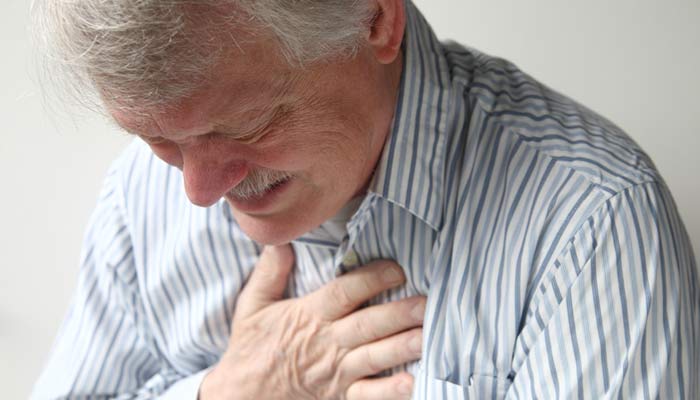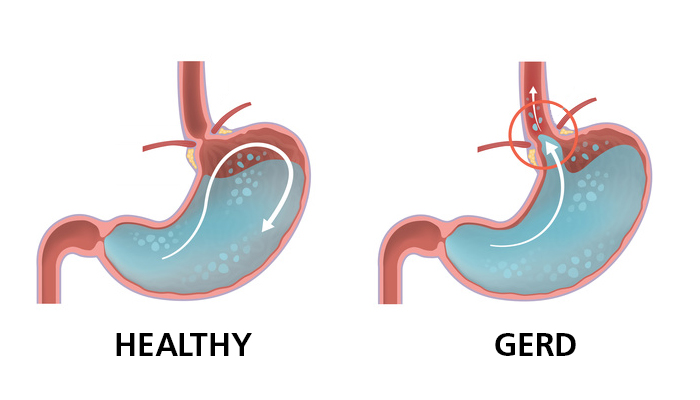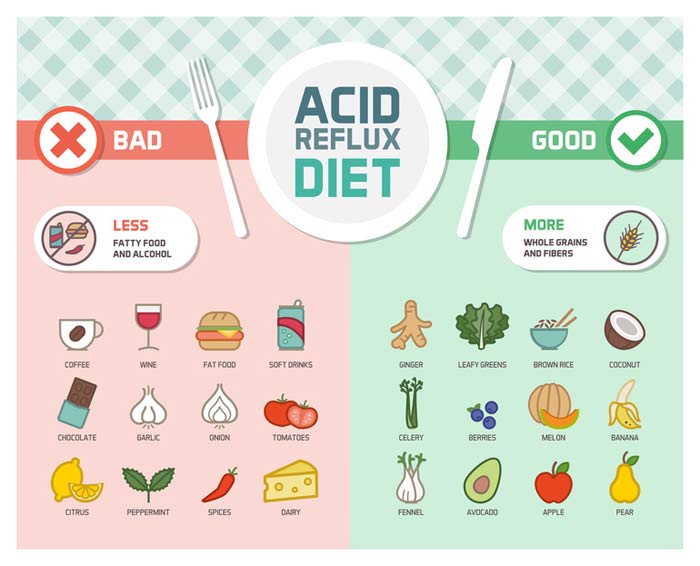
If you’ve ever had heartburn, you know how painful it can be. Sometimes the symptoms mimic those of a heart attack!
The underlying cause involves acid from the stomach sloshing up onto the sensitive lining of the esophagus, the tube that connects the throat to the stomach.
This condition is called GERD: gastroesophageal reflux disease. The primary symptom is a burning sensation in the center of the chest. Other symptoms include
- belching after a meal and bringing up a bit of food or sour, burning liquid;
- trouble swallowing;
- feeling like there’s a lump in the throat;
- hoarse voice;
- dry cough.
 Get a diagnosis. If you suspect your relative has GERD, get a formal diagnosis from the doctor—just to be sure it’s not something more serious.
Get a diagnosis. If you suspect your relative has GERD, get a formal diagnosis from the doctor—just to be sure it’s not something more serious.
GERD should be treated. Besides discomfort, more critical problems can develop. GERD is extremely common in older adults. They typically report fewer symptoms but also tend to have more complications.
Seek medical help immediately if you or the person you care for experiences severe chest pain. While it may be GERD, it truly could be a heart attack. Better to be safe.
Lifestyle changes. If GERD has been confirmed, lifestyle changes are the first line of defense.

- Eat differently. Avoid high-fat foods, alcohol, tomato sauce, chocolate, garlic, onion, mint, and caffeine (the fun stuff, darn it!).
- Lose weight. Extra pounds around the belly push the stomach upward.
- Wear loose clothing. A tight waistband also puts pressure on the stomach.
- Eat smaller meals.
- Elevate the head of the bed. Use bricks under the legs at the head end, or a wedge. Pillows don’t solve the problem.
- Wait 3 hours after eating before lying down.
Other treatments. If over-the-counter medicines don’t provide relief, the doctor may recommend a prescription. In unusual cases, surgery is required.

